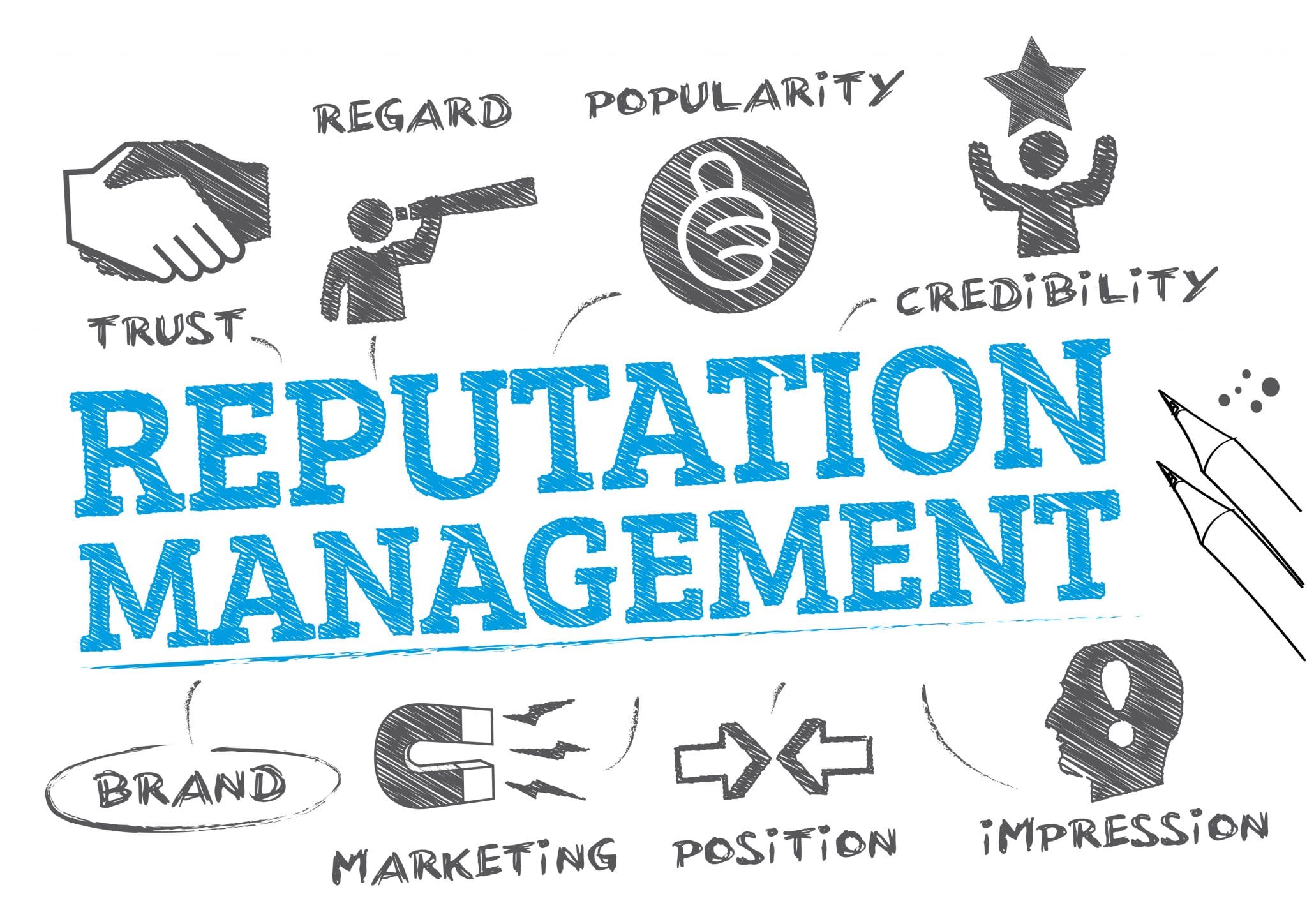Online reputation management protects one of the biggest assets in your dental marketing arsenal, how your community views your practice. Today, it is easier for your customer base, including potential patients, to learn who you are. They can learn what your dental practice stands for and how others have experienced your services.
Online reputation management is among the most common things dental care practices seek help with. This is because extremely unhappy patients tend to leave more reviews than those who have had an “okay” experience. These negative reviews far outweigh any positive reviews you have.

We often see either extremely happy or profoundly unhappy patients writing reviews. Reputation management aims to respond to all reviews with integrity, compassion, and transparency.
A key part of your dental marketing strategy is managing your reputation. This means reducing bad reviews, providing useful blog posts, highlighting the best reviews, and controlling what your clients see.
Check out our dental marketing program.
Who needs reputation management?
Online reputation management isn’t something that only certain dental practices need. Every dentist should have a team that knows effective online reputation management tools. A bad review can easily destroy the public’s perception of your practice, products, and services.
Besides checking reviews, it’s important to use social media management techniques. These techniques can help you manage your reputation on your social media accounts.

In that case, patients and your referral doctors need to trust you. One smart dental marketing idea is to create a strong online reputation management program. This program should respond to both positive and negative reviews. A good online reputation management team can help design this program for oral health specialists like Endodontists and Orthodontists.

Can I get reviews removed?
No. Companies like Google and Facebook make it exceedingly hard to remove reviews. They want to keep trust and transparency for users looking for reviews. However, if your bad reviews appear on the second page of search results, it’s as good as them not existing.
This is why online reputation management is important, even for dental specialists like you. It works to effectively reduce and limit the display of negative reviews.
Discover how to be proactive about removing bad reviews.
How long does online reputation management take to show results?
Like search engine optimization, online reputation management is a marathon, not a sprint. Cultivating your online presence requires constant vigilance and time, but it will pay off.
When customers post reviews through Google and Yelp, those reviews are there to stay. While you have the ability to respond to negative reviews, this won’t remove them. Avoiding them from the beginning is the best strategy.
Each dental website, from Google to Facebook, has a different Google indexing. Therefore, you need a strategy for each domain.
How do I rebuild my online reputation?

You must focus on online reputation management (ORM) and carefully cultivate it from the beginning. Regular staff training on customer service can help.
We must set clear guidelines for serving and interacting with patients and create rules for responding to patients’ complaints.
Responding to Bad Reviews
Inevitably, even the best dental practice will get a bad review. Ensuring your response produces the desired results is even more important than quickly addressing these reviews. After all, people want to see that humans are behind a practice, not just mindless robots.
Respond
Take the time to respond to all reviews, but consider your reply before making it. You want to ensure your response aligns with your intentions and conveys the proper message. If a patient responds that they had a bad experience, take a second to look them up in your system. Understand what they were in for and offer a solution that makes sense to them.
Dental practices may often feel overwhelmed by requests. However, it’s important to weigh the value of pleasing a patient compared to the reviews they could post.
Be Empathetic
Connecting with your patients means trying to understand what they are going through. Try to consider the situation from their point of view. By considering the situation from their perspective, you can address their frustration compassionately.
How would you feel if your perception was what they were experiencing? Maybe their tooth still hurts, and they are sad they need a new dental implant after months of waiting.
It is important to remember that a patient’s feelings may not reflect objective reality. Taking a moment to recognize this can help you better understand their experience.
When healthcare providers work from a place of understanding, they help patients feel valued and acknowledged. Empathy for your patients’ situations will help you respond appropriately to their needs.
Thank Your Customer
Whether they have left a bad review or not, thank your customers. Thank them for the honest feedback and the opportunity to make the situation right for them. By remaining humble and open, you show customers you are doing your best to serve them.
Be Precise
Debating a customer’s experience with them isn’t an effective way to reach a resolution. Don’t focus on the details; get down to the core of their complaint and take steps to address it.
Take time to understand the facts and the chief complaint, and address those in the most professional and caring manner possible. Your final response to a complaint should be clear, concise, honest, and proactive.
Accept responsibility for your or your staff’s role in causing the situation. Reassure the customer that you’re doing your best to fix the situation and that you will improve. A local business’s reputation can hinge on how it treats customer complaints.
Finally, be certain that your actions align with what you’ve told them to expect regarding reaching a resolution. If you do come up with a solution to fix the situation, be sure to come back and update your response.
Fix the Situation
If you get a negative customer review, it’s important to take steps to fix the problem. Respond through the review portal and offer a fix that fairly addresses the customer’s complaint.
Some of your reviews may be negative comments on social media platforms rather than review sites. Effectively handling these social media posts can build trust in existing and potential customers who see how you respond.
Choose your words carefully, but be certain your responses are sincere. Make sure your offer is something you can follow through on. It should be something the customer will appreciate.
Once you fix the situation, tactfully ask the reviewer if they would be willing to modify their review. This empowers them to decide and allows you to plant the seed in their mind that tells them they can make this choice.
Force Them to Remove Reviews

Online reviews can be hard to remove, but it is possible. This can happen if the review is from someone who isn’t a patient or if the review breaks a company’s rules. For example, pretending to be someone you’re not violates Google’s terms of use.
Unfortunately, successfully removing a review can take months. Ultimately, the website must decide if it will accept your removal request. This decision depends on the evidence you give.
Removing reviews takes time and patience but is well worth the effort in the long run. Remember, however, that forcing people to remove reviews is only possible in rare circumstances. A good online reputation management plan is the best way to protect your practice’s online image. It helps you use the internet to promote your business effectively.














